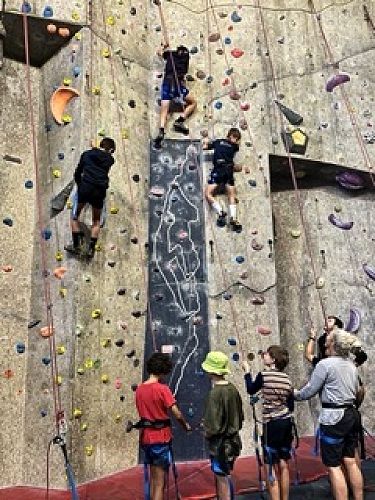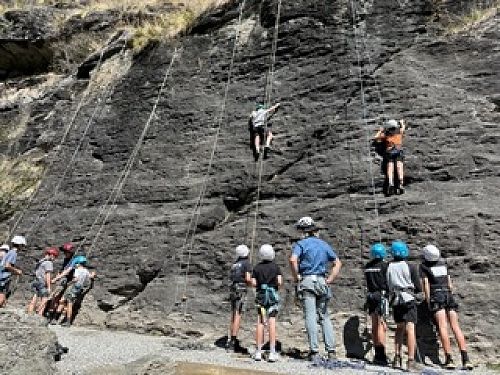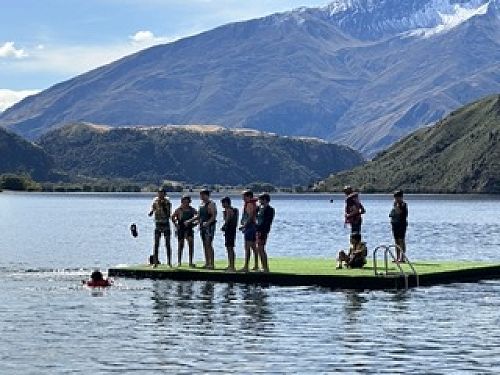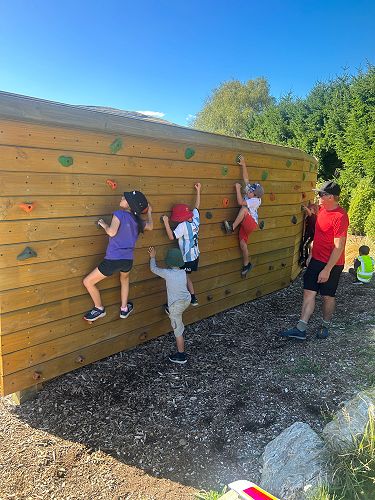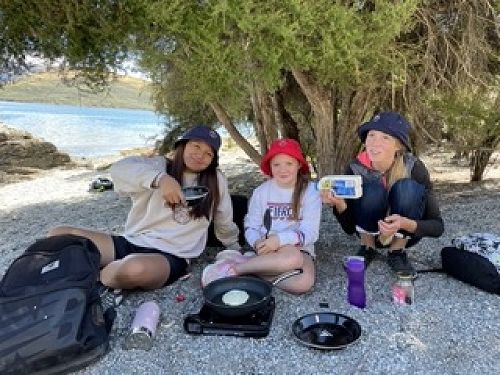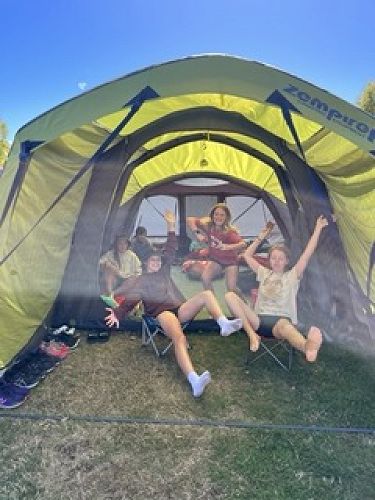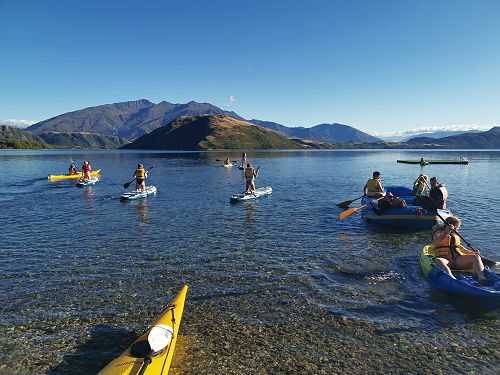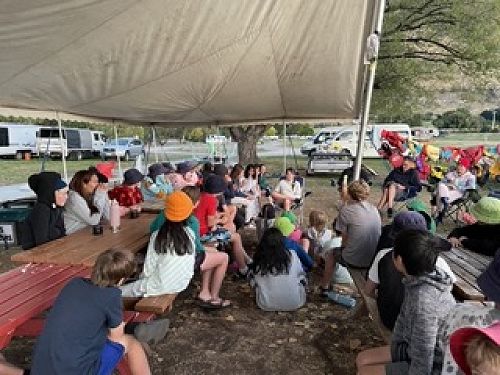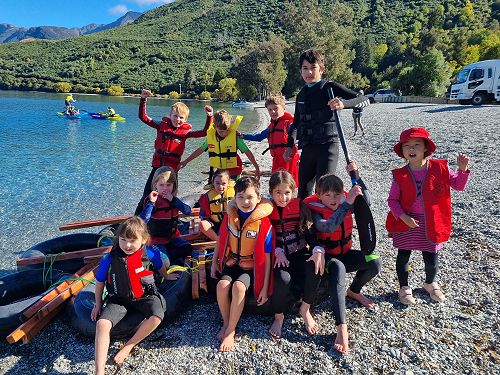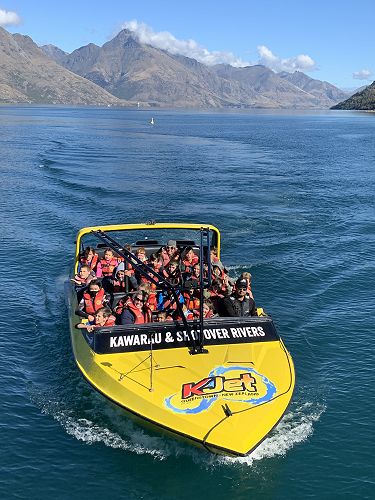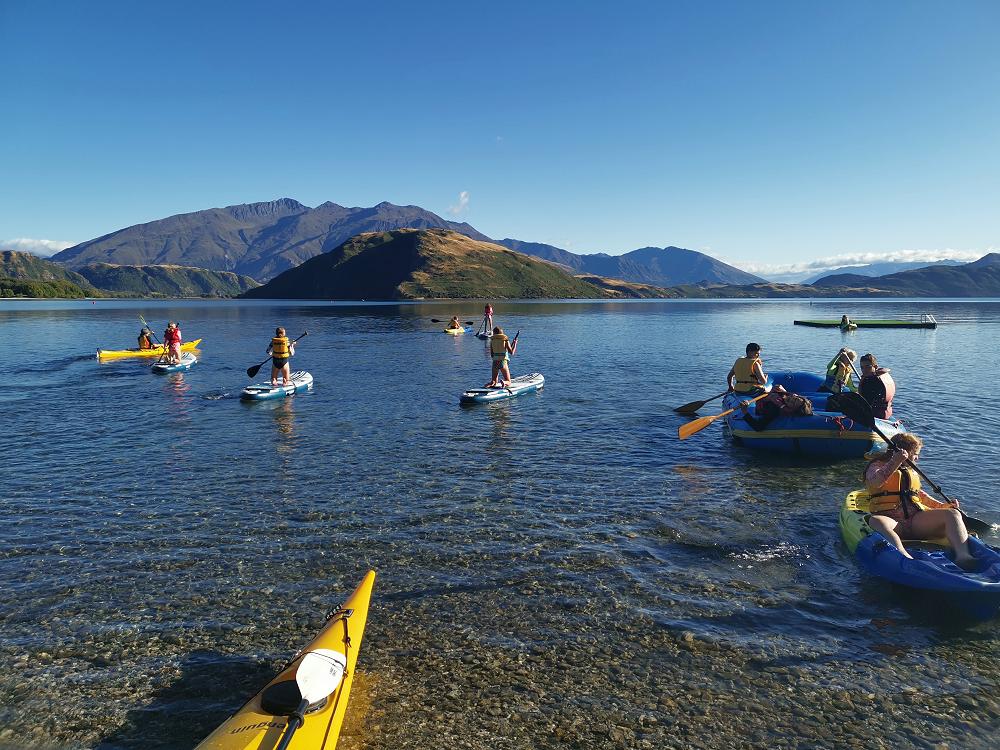
Outdoor Education at Queenstown Primary School
Queenstown Primary School is renowned for its Outdoor Education programme and we’re proud of the opportunities and experiences made available to our students/ ākonga. Outdoor Education is an aspect of Education Outside the Classroom (EOTC) and aims to extend the four walls of the classroom.
Programmes in Outdoor Education are essential for connecting students with nature and their local environment.
Through learning in outdoor education, students can explore concepts such as manaakitanga (care and responsibility), kaitiakitanga (guardianship), whakawhanaungatanga (social connections), ārahitanga (leadership), and kotahitanga (unity and cooperation). We value students giving back to the community who generously support the school.
Outdoor Education includes learning skills in specific outdoor activities, such as biking, camping and hiking. It also includes developing an appreciation of the local area, learning the stories, and how the environment is connected to where they live. Outdoor activities foster the personal and social development of students through experiences involving:
co-operation
trust
problem-solving
decision making
goal setting
communication
leadership
responsibility
reflection.
Queenstown Primary School weaves the following concepts through learning in this area:
HEALTH - HAUROA
In Outdoor Education programmes, the four dimensions of Hauora are enhanced through safe, challenging, and enjoyable learning experiences in the outdoor environment.
The four dimensions or elements are:
taha hinengaro – mental health and emotions
taha wairua – spiritual health
taha tinana – physical health
taha whānau – whānau as the epicentre of one's well-being.
ATTITUDES AND VALUES
Attitudes and values developed through outdoor education include:
a sense of fun and enjoyment
the value of personal and interpersonal skills
an appreciation of the traditions and values
understanding of the environmental impact of outdoor recreation activities
care for the environment and the whenua/ land
constructive attitudes to personal and group safety, challenge, and risk
the value of local environments to communities and groups.
THE SOCIO-ECOLOGICAL PERSPECTIVE
Through the socio-ecological perspective, students will investigate the importance of the outdoor environment and outdoor activities to the well-being of the Wakatipu and Aotearoa. They will examine social, cultural, scientific, technological, and economic influences on outdoor activities, on the environment, and on how the environment is used.
HEALTH PROMOTION
The enhancement of health promotion through outdoor education requires school-wide policies and procedures to ensure that appropriate activities, safe practices, and the most suitable community resources are selected, used, and evaluated.
Our Outdoor Education programmes follow safe practices and meet our duty of care.
Examples of EOTC opportunities for our students include:
Whole School:
Hiking to Lake Alta (Remarkables Ski Area)
Walking the Sam Summers Track
Wilding Pines project - Skyline Gondola
Jet Boating the Kawarau River
Hiking at Wilson’s Bay
Planting at Arthurs Point
Creating with Masterchef
The Amazing Race around Queenstown CBD
Junior Students: Year 0 - 2 students
Tubing the Arrow River
Gold panning
Water and Wheels
Exploring the Queenstown Gardens
Ice Skating
Middle School: Year 3 - 4 students
Kelvin Heights Camp - 1 night
Bannockburn Camp - 2 nights
Biking the Frankton Track
Snowsports - optional
Senior School: Year 5 - 6 students
Moke Lake Camp - 2 nights
Stewart Island Camp - 1 week
Snowsports - optional
Walking Ben Lomond
Intermediate School: Year 7 - 8 students
Glendhu Bay Camp - 2 nights
Cecil Peak Camp - 2 nights
Rail Trail Camp - Year 8 students
Snowsports - optional
Riverboarding the Kawarau River
Rockclimbing
….. and many more!
Gallery
